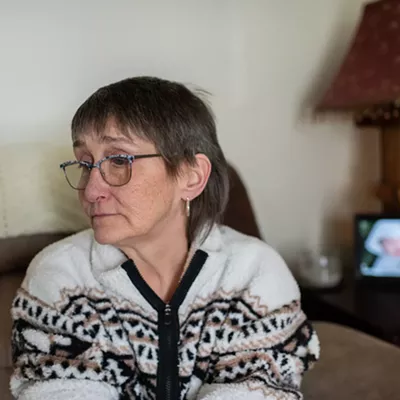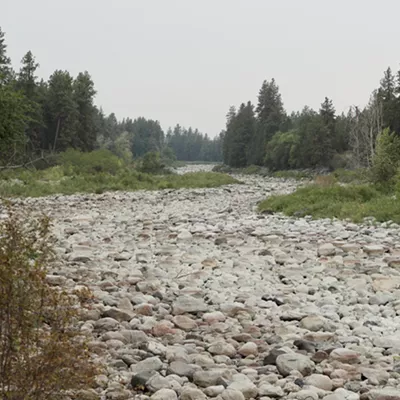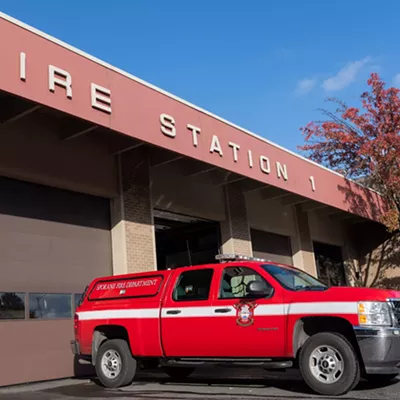The global scramble to develop an effective vaccine against COVID-19 gets the limelight, and understandably so. But there's also potentially game-changing coronavirus research in the cooker that doesn't involve a vaccine.
At the University of Idaho, researchers are trying to find a cure for COVID-19 that would stop people from catching the virus to begin with.
"This virus is not going anywhere," says Jagdish Patel, a molecular modeling specialist at the U of I and part of the team working on the cure. "We will need many alternatives and options."
Here's how it would work: While vaccines trigger immune system responses to viruses, the team at the university is trying to discover a drug that could, in theory, prevent COVID-19 from ever gaining a foothold in the human body.
Currently, COVID-19 infects people by using its spike proteins — you might recall the rendering of COVID-19 as a ball covered in spikes — to enter through "cell surface receptors," where it begins to replicate and spread to other cells. But the Idaho researchers want to find a drug that can effectively block COVID-19 from interacting with human cell receptors.
Think of it like giving human cells their own mask, Patel says.
"In this entire process, the most crucial step is the attachment of the spike protein to the human cell receptor. Our goal is to prevent this interaction," he says. "Our idea is to provide a shield or a mask for this human cell surface receptor.
"You can imagine proteins interacting with each other and something in the middle so that interaction won't happen," Patel adds. "We are developing a shield."
But don't expect the researchers to discover this cure overnight. While Patel and his colleagues, virologist Paul Rowley and evolutionary biologist JT Van Leuven, have experience working on other viruses, like the infamous Ebola disease, the process of finding a drug that could stifle COVID-19 infections is tedious. Essentially, Patel uses a computer to identify proteins that may protect human cell receptors, and then his colleague tests the protein in a lab using a "pseudovirus," a harmless virus that has a similar structure to COVID-19.
"The receptor is a lock and the [protein] fragment is the key. And now you have millions of keys and you have to find the right key to unlock the lock. So you cannot do it manually. We use computers to find the right key," Patel says. "Once we find some promising keys that we think can potentially open the lock, I provide a short list of the keys to my collaborators, who would go in the lab and basically mix these keys, or these drugs, with the human cell surface receptors."
While the team has been at it for over a month, their current goal is to find a promising lead by the end of the year. After that, they'll conduct a series of tests and studies to make sure that the drug is actually safe. Patel says that, unlike efforts to develop a vaccine for COVID-19, his team is "starting from scratch."
"Our goal is to basically come up with promising chemical lab testing by the end of the year," he says. "Ours is a long-term strategy."
However, Patel is hopeful that their cure will not only be effective against COVID-19 but help stop other viruses from the coronavirus family.
"Let's say in the future that there is another coronavirus or some other virus that wants to enter into human cells or infect human cells using the same receptor, then we would already have a trial," he says. "If you recall the SARS epidemic in 2003, that virus also used the same receptor that we are targeting or building a mask against.
"There are already three viruses from the same family that are using this same receptor. The drug that we would develop would be broad," Patel adds. "Our strategy is basically to tackle the present scenario and also the future." ♦






















